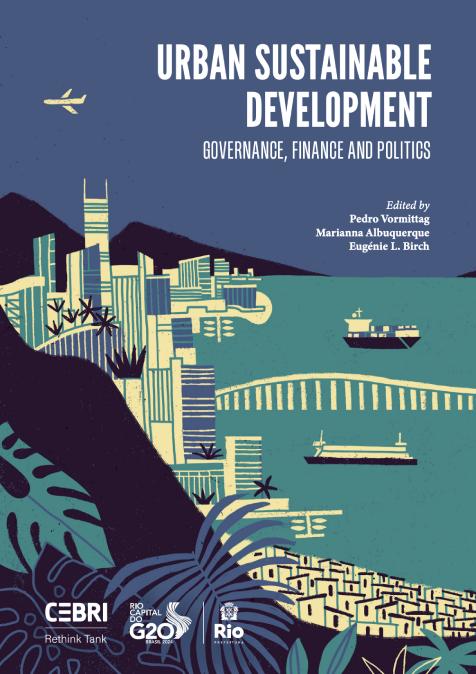Publications /
Opinion
This blog was originally published in the book Urban Sustainable Development: Governance, Finance, and Politics, a collaborative effort by the Brazilian Center for International Relations (CEBRI) and the Rio de Janeiro City Hall. The Policy Center for the New South has contributed as a Knowledge Partner to this work.
I belong to a city that has been evolving positively for 20 years. Rabat has one of the world’s highest rates of green space per square meter per capita. This focus on sustainability is linked to the city’s heritage and geographical position. A forest surrounds the city, the world’s largest natural cork oak forest, which is a significant asset.
Greening cities through urban green spaces is critical, and Rabat has one of the world’s highest rates of green spaces. This has been a long tradition since the early 20th century, but it has been strengthened recently, especially with the “Rabat, City of Light, Cultural Capital” vision. Here in Rabat, there is a dialectical link between interest in history, culture, and the environment.
The environment concerns both the past and the future. Still, if we connect it to culture and root it, it gives a kind of essential legitimacy to any pro-environmental policy.
Rabat has an environmental and historical dimension, and as a capital, it promotes partnerships with other cities. Since its designation as a United Nations Educational, Scientific and Cultural Organization (UNESCO) Heritage Site in 2012, Rabat has had a dual obligation: to safeguard its cultural heritage—Roman, Almohad, Marinid, and Alawite—and to preserve its space. Rabat has always tried to create a dialogue between the heritage of the past and the spatial determinants between geography and history.
In the Moroccan context, like other cities in developing economies, the big issue is that cities lack financial resources. Therefore, the state needs to transfer financial resources to cities. Still, it is also important to have tax reforms that provide local authorities with the resources they currently lack to introduce the sustainability factor. There needs to be mediation between state financing and city financing; otherwise, cities will remain in a state of dependence, waiting for state support for their budgetary policies.
The first challenge is that poor and developing countries do not have the means to adapt to the risks of climate change. Therefore, developed countries must transfer resources to developing countries to help them participate in the sustainability of the economy, especially since these countries are not responsible for pollution or environmental degradation. There has been an international commitment on this issue since 2015.
Additionally, the issue of slums is crucial. In a city like ours, there are two types of pollution: pollution from development (industrialization, transport, etc.) and pollution from poverty, which comes from slums and marginalized neighborhoods. Addressing sustainability means tackling both types of pollution.





